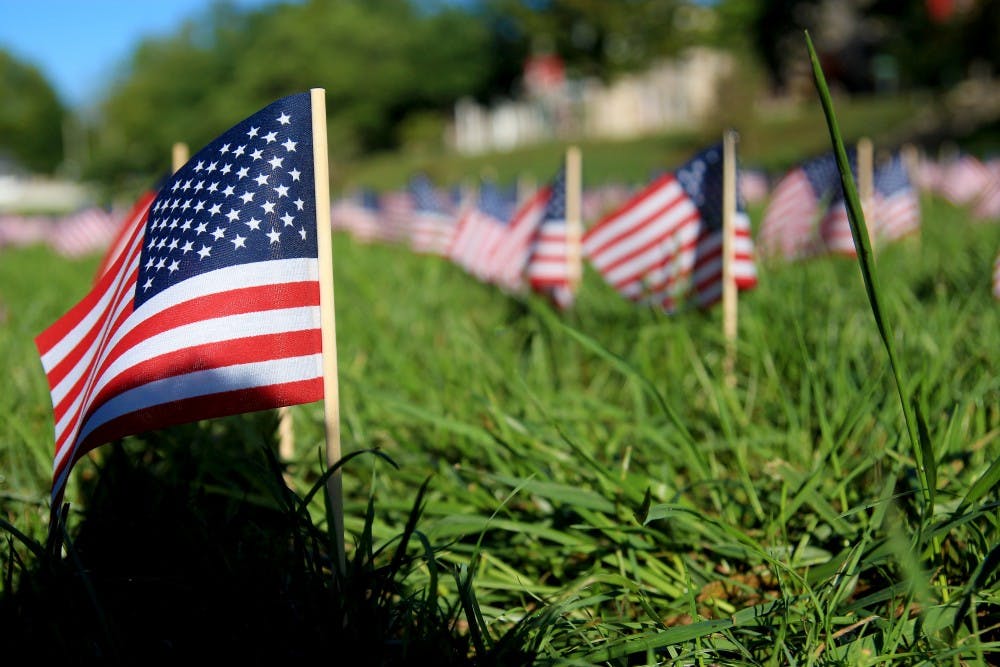Seventeen years have passed, but Bloomington still vividly remembers the tragic events of September 11, 2001.
Bloomington Mayor John Hamilton was at a breakfast meeting when he heard about the attack. He was working for the State of Indiana in Indianapolis. After hearing the news, the day became unusual. Although they had work to get done, it was hard to focus and most of the day was spent planning out the logistics of how to help their colleagues, who were spread out all over the country for work, get back home.
Tuesday morning, Hamilton will be attending a 9/11 memorial service.
He said he hopes the IU and Bloomington communities remember the unity and shared humanity that an event like this reminds us of.
“We remember the people that lost their lives that day and those that gave their lives helping,” Hamilton said.
Political science professor Christine Barbour said she remembers getting a call from her friend telling her to turn on the TV. She had her computer close, so she turned it on instead. She saw one airplane fly into the World Trade Center, and then another one. She said she couldn’t believe it – she was confused by everything.

“It happened slowly and it unfolded over time,” she said.
She watched the news all day that day and still couldn’t understand what was happening.
The New York Times published biographies of every person who died in the tragedy. Barbour said she made a commitment to read all of them.
“I felt like I needed to bear witness to the unfortunate place and time that these people found themselves in,” Barbour said.
Although Barbour said she teaches her students that most citizens are self-interested, the notion of “what’s in it for me?” can change when it comes to moments like this.
“In times of trouble, of real real trouble, we are able to put our country above ourselves,” she said.
Barbour said she didn’t know what this event meant or what the future held. Would everything change?
Students were confused and wanted answers, Barbour said. “Why did they hate us?” the students asked. The professors in the political science department had no way to respond to this confusion but wanted to do something to help.
Barbour organized a team-taught series of classes for the spring. Almost every professor from the political science department, and some from other departments, taught about different aspects of the 9/11 attack.
9/11 was a complex matter, but together, they were able to bring their different perspectives to try to make sense of it, said Barbour.
This class took place in Woodburn 100 and the back row was always left open for the community. Each week, the topic and speaker of the class was posted online for everyone to see. The room was full almost every day.
“It was the most rewarding teaching experience of my life,” Barbour said.
Barbour said everyone wanted to pitch in and help, and this was something they could all do to come together. Even though it didn't make 9/11 better, the way the University pulled together to respond to this helped students and professors work to understand the tragedy.
“It was a way of making a contribution, and I’ve always been proud of it,” Barbour said.
Many years have passed since that day, but the memories have not faded for Barbour and Hamilton. Barbour said people should think about 9/11 not only today, but every day.
That weekend after the attack, Hamilton took his two sons camping and it was surprisingly quiet.
“It was an eerily quiet weekend and it felt strange,” he said.
The campground they stayed at was rustic and old fashioned, it reminded him of simpler times when technology didn't exist. It was an interesting feeling to him, given the recent events, to think about what life was like just being with family.




